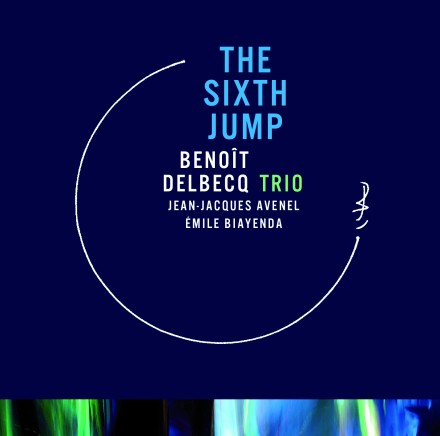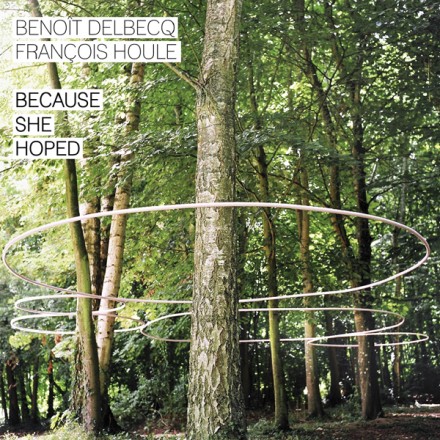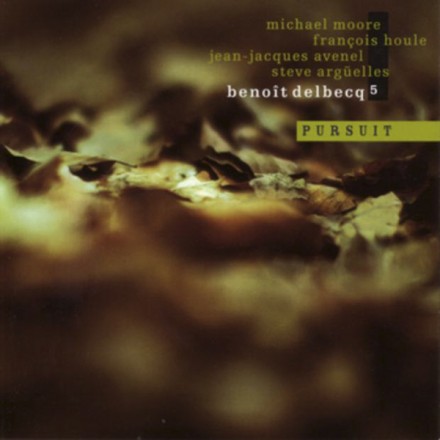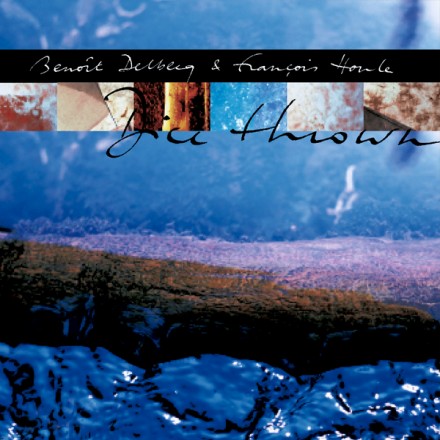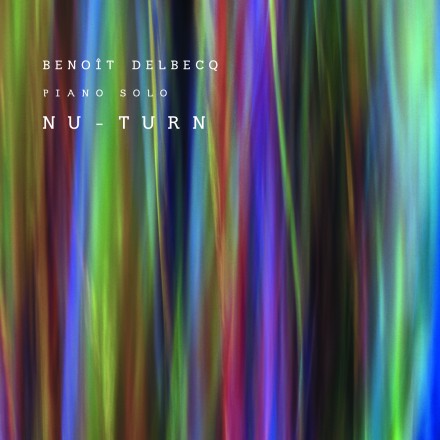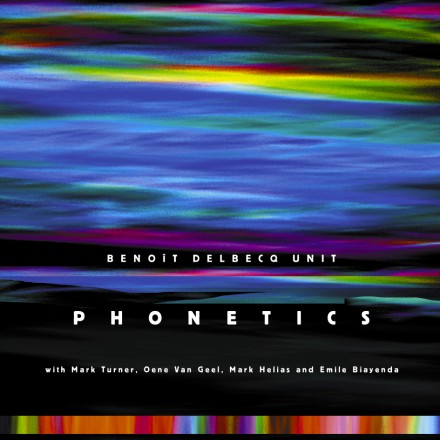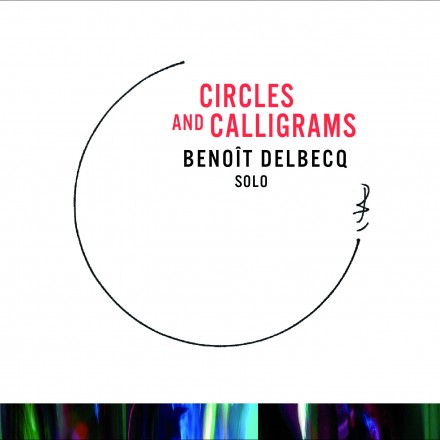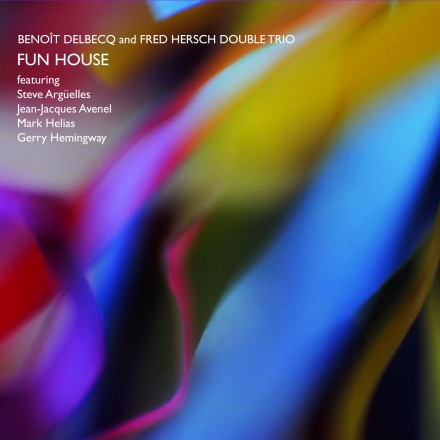Benoît Delbecq Trio
The Sixth Jump
SGL 1585-2
“Luminous harmony, intellectual rigor, and modernist piano technique…a forward-thinking musician…”
—Ethan Iverson, All About Jazz New York
For Benoît Delbecq’s 9th and 10th releases on Songlines (counting collaborations and the co-led groups Kartet and Poolplayers), The Sixth Jump and Circles and Calligrams, the Paris-based pianist has recorded two slightly overlapping programs of his compositions, some new, some revisited. Returning to the solo piano after a remarkable piano duet with Andy Milne (Where is Pannonica?, 2009) and his initial solo disc Nu-turn (2003), and at the same time presenting his first trio release, Delbecq is offering a career summary of sorts while continuing to advance and refine his particular approach. Celebrated in France, and named “one of the avatars of the prepared piano” by Jazz Times, he has included jazz and improv greats from both Europe and North America among his groups and collaborators (Mark Helias, Mark Turner, Michael Moore, François Houle and Arve Henriksen, to name a few), and has performed regularly in Canada and the US in recent years, yet he’s still far too little known here.
No doubt part of the reason is that to really ‘get’ his music requires an openness to sonic experimentation as well as an appreciation for formal complexity and even a degree of abstraction (though not for their own sake). Given that, the pleasures of these records are many: a fantastic array of prepared sounds, turning hammers and strings into a percussion orchestra while not neglecting the conventional resources of a beautiful-sounding 92-key Bosendorfer; intense yet supple polyrhythmic improvisations built up in interlocking layers and cycles, which in the trio are woven together with the bass and drums; and a distinctive melodic/tonal sense that balances consonance and dissonance with the timbral shifts of the preparations in many intriguing ways. His work shows a deep connection with both the modern jazz piano lineage (Monk, Waldron, Ibrahim etc.) and elements of the classical avant-garde (particularly Cage, Messiaen and Ligeti), and combines these influences and others such as pygmy polyphony into a truly unique style. This is music that readily communicates on a physical and often an emotional level but reveals ever-more-subtle aspects as you get to know it.
A few words about Benoît’s collaborators here, almost all of them long-time associates and friends. Jean-Jacques Avenel was of course Steve Lacy’s preferred bassist for some 20 years (the brief “Flakes” on Circles is a Lacy tune, an unadorned tribute to one of Benoît’s mentors). He performed in the Delbecq 5 (Pursuit, 2000); he is also a kora player, a passionate advocate of traditional Manding music, and for many years led his own West African group in Paris (Waraba, 2004, produced by Delbecq). Avenel and the Paris-based Congolese drummer Emile Biayenda, who Benoit first performed and recorded with on a tour to Central Africa in 1994, set up wonderfully unpredictable grooves, and continuously co-create the music with total involvement. The three of them mesh not just rhythmically but timbrally, as Benoît describes:
“Emile and Jean-Jacques both have a magnificent sound, they are masters, a source of inspiration. During the rehearsals I had the feeling of simply diving, as one would dive into a sea about which we’d heard and which turns out to be completely incredible, a water of particular density, particular temperature. Also what I love in the alchemy created by Emile and Jean-Jacques is their relation in the hierarchy of cycles, it is very free, very intuitive – they come to complete at an equal level my ‘flexible rigor’ so to speak. The timbres create other cycles, subterranean cycles, the effect obtained is mysterious.” In this trio Biayenda uses two snare drums and two gourds, and an ankle shaker like the ones used by the drummers in his group Les Tambours de Brazza is attached to the bass drum.
Another notable feature of both records are the remixes, which present quite different sonic perspectives on the music making. Benoît and drummer/electronics wizard Steve Arguelles have been developing their artistic complicity for 20 years, in groups such as the Recyclers and Delbecq 5 – and for the last 13 years their duo Ambitronix, recently expanded into a new improvisational trio, Manasonics, with the addition of Nicolas Becker. Arguelles’ remixes of material from the trio multi-tracks examine the three instruments individually, with a kind of improvisational spirit; Benoît calls them “rather cinema-like, these sorts of elliptical narrations.” Becker is in fact a foley artist/sound supervisor/sound designer and composer for films – he and Benoît recently collaborated on the score of the Israeli-French co-production Lebanon, and Benoît calls his quietly spooky “Mille Nandie” remix “a trip of mental images that brings my music closer to film music. Every sound you hear comes from my piano itself, there is no other source added…it is a ‘bio’ remix so to speak.”
And the record titles? The Sixth Jump refers to a “radical storm” in his personal life, at the end of the sixth cycle of seven years (i.e. around his 42nd birthday), when he also had to compose music for his newly formed trio – the tune “Le sixième saut” reflects this period of “emotional rape, which I needed to transform into a very quiet piece while remaining a little tragic – it is loaded with 7 years of my life.” Circles and Calligrams are the visual patterns that Benoît sketches with pen and paper at a certain stage in the conception of a new piece (“I am still in a sound dream-state”) – designs that help visualize ways of superimposing forms and building up ‘fabrics’ of various motifs. The solo record was in fact crafted as a performance set during a fellowship residency at the Civitella Ranieri Centre near Perugia. “These six weeks in Italy, alone in my studio at the top of a hill, were an important step in my life. About half the pieces are new. I couldn’t possibly produce a whole new set of tunes – the time that’s necessary to assimilate the concepts is very long, I’m very slow when it comes to learning new combinations even if they’re mine. So I also spent a lot of time revisiting older compositions – the idea being to arrive at the recording studio and forget myself in the playing.” Both records are beautifully engineered and mixed by Etienne Bultingaire, “whose ears delight me – he has a way of recording the piano which perfectly reveals the details, space and depth of the instrument.”
Watch a video of the recording session here.
Grand Prix International du Disque, Académie Charles Cros (jazz), 2010
Choc de l’année, Jazzmagazine/Jazzman (12 best of the year, 2010)
Choc (*****), Jazzmagazine/Jazzman
Elu, Citizen Jazz
Selection of the month, So Jazz
“A thoughtful chill runs through the music of Benoît Delbecq, a French pianist of investigative temperament and crystalline technique…He has traveled a mixed continuum of modern jazz, indigenous folk and contemporary classical, without getting hung up on orthodoxy. There’s a ton of compressed energy in his playing, but he projects an unflappable calm. Mr. Delbecq has two new albums, both excellent reflections on his musical identity…Each stands alone, but they make even more sense together, and not just because they have a couple of tracks in common. They share an air of relaxed intricacy and matter-of-fact experimentation, coming across as neither precious nor arcane. The solo album is partly a showcase for Mr. Delbecq’s piano preparations, manual tweaks to the instrument, using erasers and pieces of wood, that put a range of expressive timbre at his fingertips. The Sixth Jump…features the esteemed French bassist Jean-Jacques Avenel and the ingenious Congolese drummer Emile Biayenda. In this version the song is further abstracted, pulled wide like taffy, and yet the stir and resonance of the trio gives it a rooted quality. A similar thing happens on ‘Ando’ (the other overlapping tune) and on ‘Letter to György L.’ (for Ligeti, naturally) the sympathetic, patient rapport of the musicians brings cool clarity to some dissonant ideas. A lot of the joy in that rapport derives from African polyrhythm, a specialty for all of the musicians onboard. Mr. Biayenda’s drumming, deftly incorporating shakers and gourds, makes that connection clearly but with subtlety. Mr. Avenel is no less crucial, often shaping counterpoint in ways that suggest Malian kora music. But the flow of the trio, as governed by Mr. Delbecq, is modern, even sleek. It says something that this album includes several remixes, by Steve Arguelles, that fit quite seamlessly into the whole.” — Nate Chinen, New York Times
